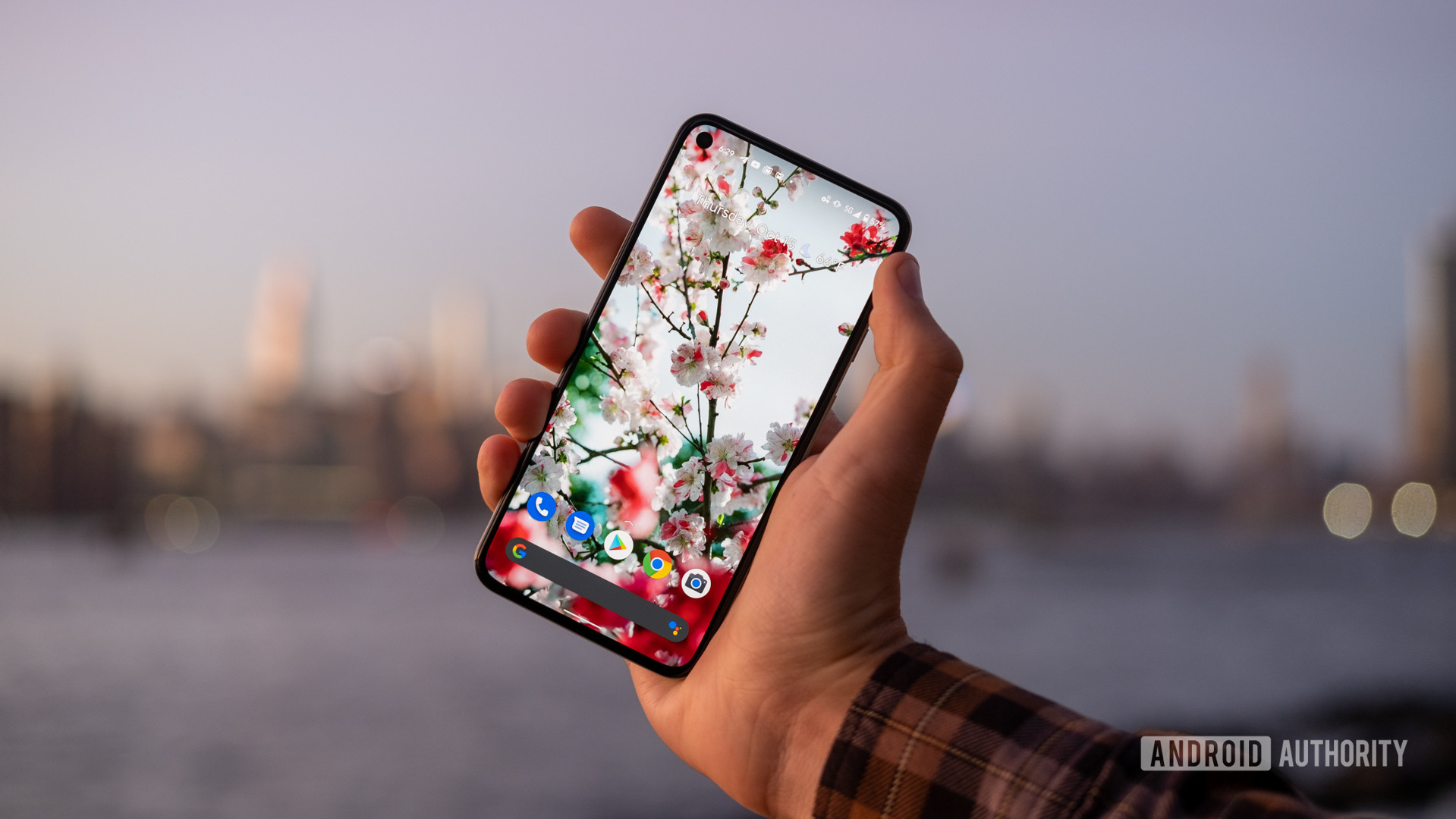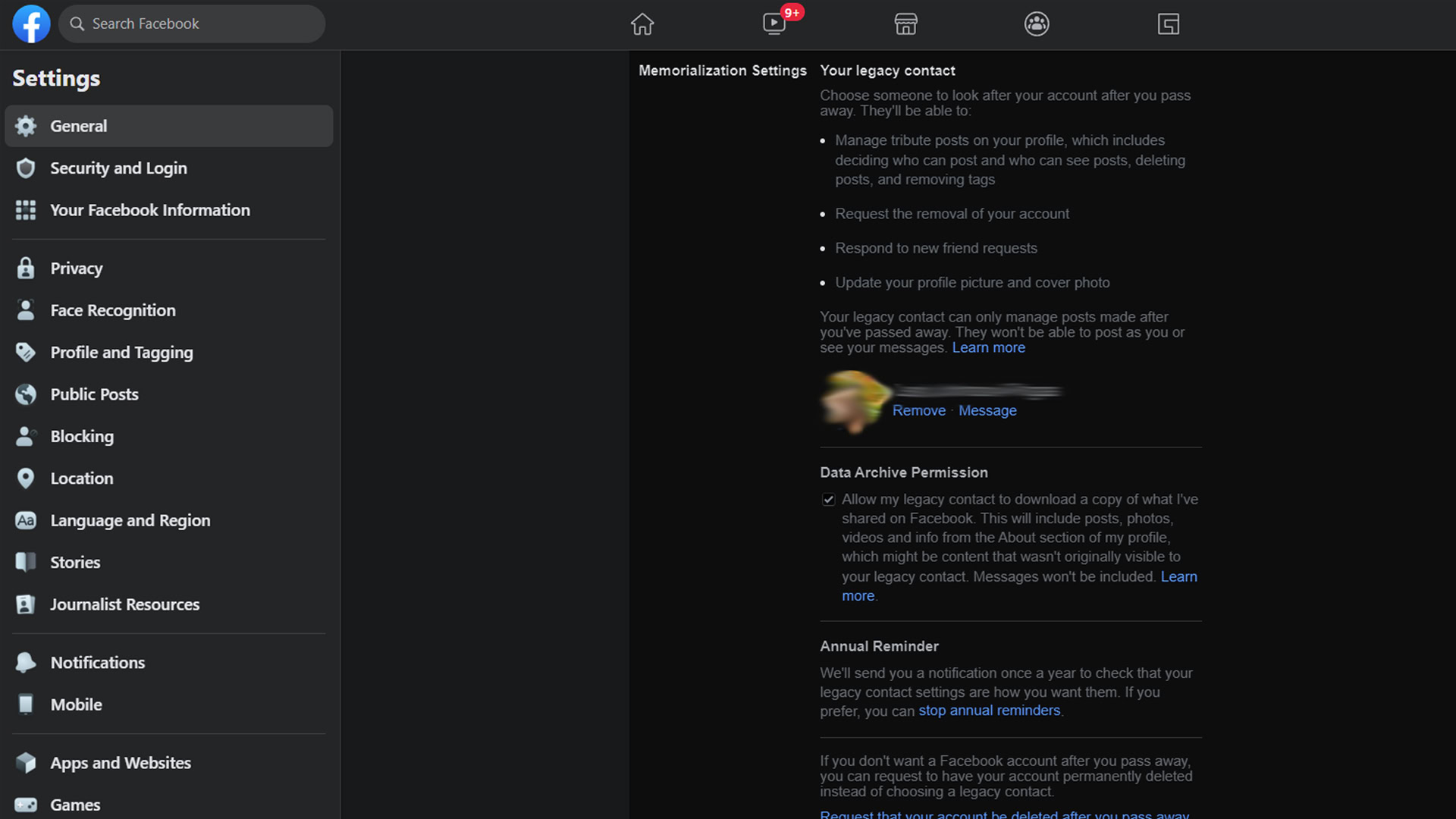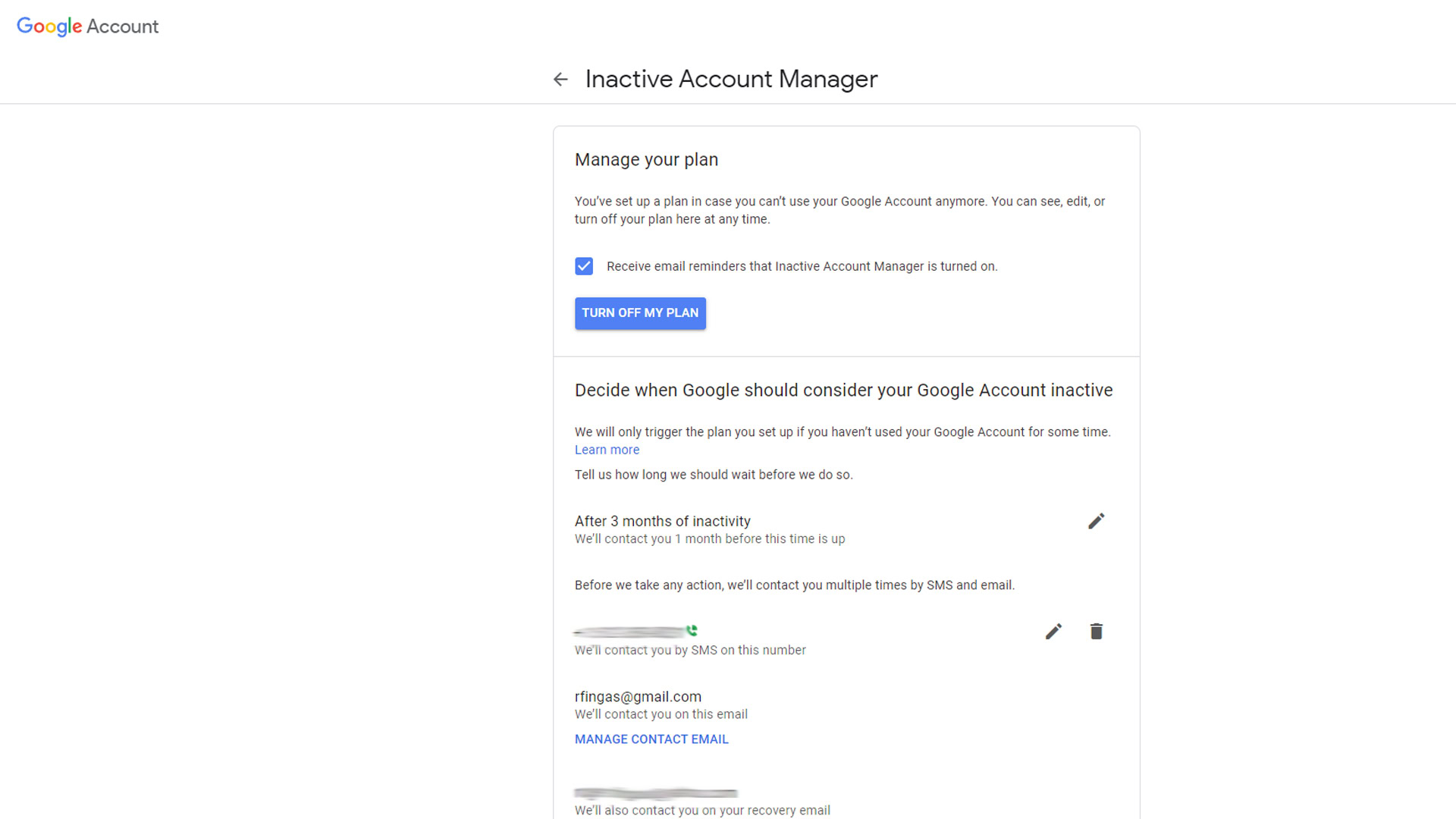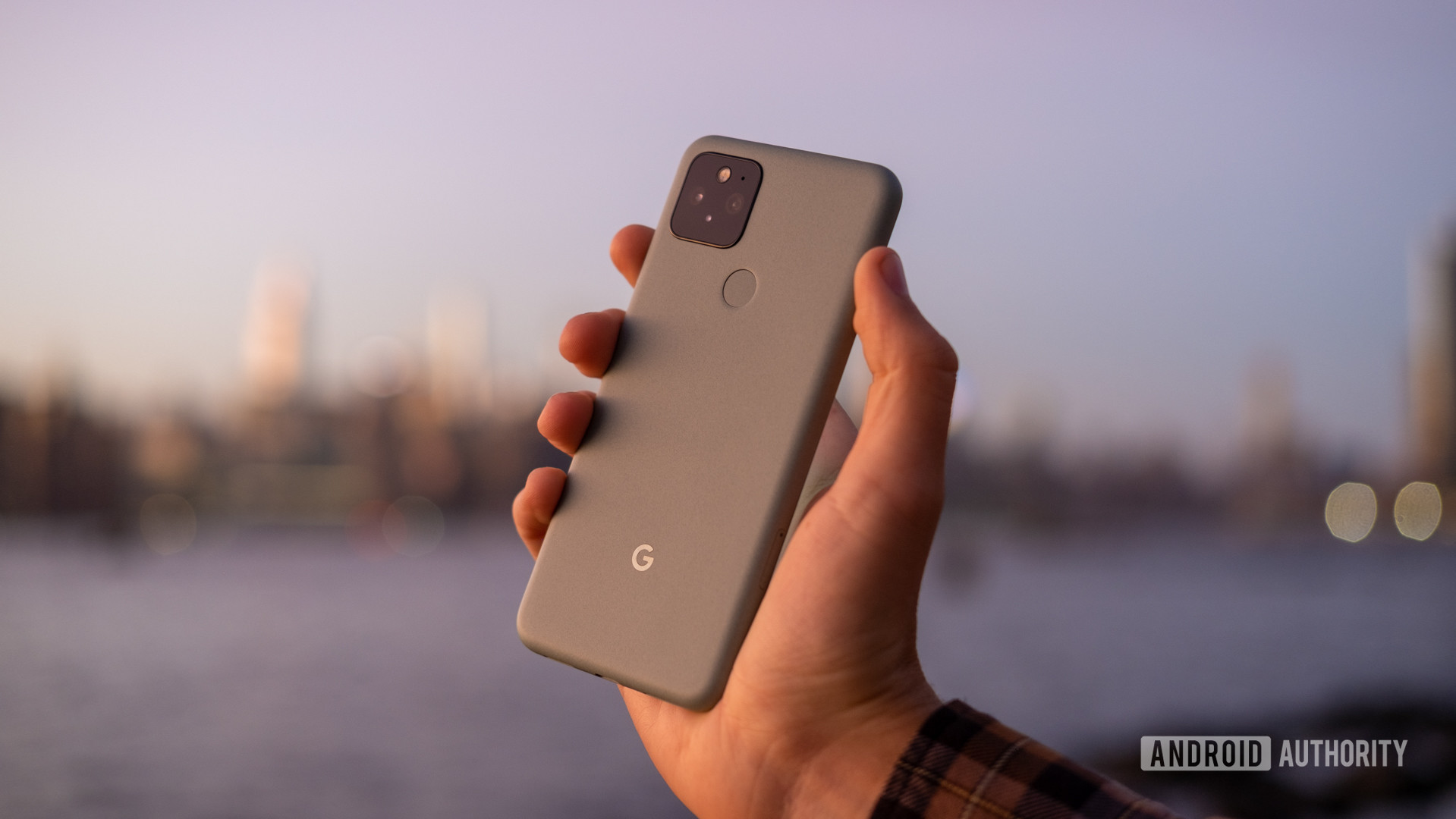Affiliate links on Android Authority may earn us a commission. Learn more.
Who handles your death better? Google, Facebook, and Apple compared

With so much of our lives wrapped up in online services, we tend to be thankful for companies stepping up security to prevent hacking and privacy violations. But this can actually backfire when it comes to the deceased — suddenly, partners and family may not be able to access vital information, such as bank and insurance accounts, or photos and videos of important memories. Personal data might disappear in the ether after our death.
A number of tech companies are trying to address this problem. Google, Facebook, and Apple are among the most prominent in people’s lives — so how do they stack up against each other when it comes to dealing with the inevitable?
Related: How secure are password managers
How Facebook handles deaths

Facebook‘s strategy revolves around the concept of appointing a legacy contact. That person has the ability to look after your account when you die, including viewing posts of any privacy setting. They can’t log into your account directly, but they can request that it be either ‘memorialized’ or deleted outright. Don’t worry — if you don’t want your Facebook data to live on after your death, you can specify that ahead of time by going into Facebook’s Settings & Privacy menu on the web, clicking Settings > General > Memorialization Settings. If you choose to have your data deleted, Facebook will permanently remove everything once someone informs them of your death.
What is a memorialized account? Effectively it’s frozen in time, severed from much of Facebook — memorialized profiles won’t show up in birthday reminders or friend suggestions, for example. Your legacy contact can accept friend requests, swap profile pictures, change the privacy settings on posts, and pin a tribute, but otherwise, the only possible changes are tribute posts from friends, which your contact still has authority over.
A memorialized account is frozen in time, severed from much of Facebook.
If they like, and you’ve preemptively allowed it, your legacy contact can download a copy of any content you’ve shared on the platform including photos, videos, posts, events, contact info, and your friends list. Facebook Messenger exchanges are out of reach, however, so chats and any files shared that way may be locked away forever.
For memorialization or deletion to happen, a friend or family member has to contact Facebook with proof of your death, such as an obituary or death certificate. In fact, there’s no need to appoint a legacy contact, strictly speaking. But if your account is memorialized without one, no one can lay claim to it and access it.
See also: How to fix common Facebook issues
How Google handles deaths

Google’s approach revolves around the Inactive Account Manager (IAM), which allows you to notify people and share data with them if you’ve been inactive for a set period of time. Activity is defined as things like Gmail usage or signing into one of the company’s services.
The IAM waiting period can be set to three, six, 12, or 18 months, and Google will still try to reach you by email or SMS before it takes any action. You can appoint up to 10 ‘trusted contacts’ that will be notified when you’re declared inactive — each must have both an email address and a phone number in order to verify themselves.
The Inactive Account Manager allows you to notify people and share data with them if you've been inactive for a set period of time.
You can choose which services each contact will be able to download data from. You can also choose to have your Google account self-delete, but trusted contacts will still get up to three months to download any data they’re permitted access to.
It’s important to be careful with IAM settings, especially the waiting period — if you rely on Gmail, being declared inactive will lock you out of your messages, and even prevent you from reusing your Gmail username. At the same time, it can be unfair to contacts to force them to wait for your data, so it might be worth sharing your login info with someone you trust now as a fallback.
If you don’t have IAM active, loved ones will have to submit a request to access your Google data or close your account. This involves a government ID and a death certificate, and they still won’t be able to access stored passwords, which might cause problems if they need to access Chrome web logins.
How Apple handles deaths
Apple demonstrably dragged its heels on the issue of death for years. While iPhone, iPad, and Mac owners can now appoint a ‘Legacy Contact,’ the option only went live with iOS 15.2, iPadOS 15.2, and macOS 12.1 — all of which were released in December 2021.
Legacy contacts are friends or family allowed access to data associated with your Apple ID, including photos, messages, notes, files, apps, and/or device backups. They can’t, however, access passwords in your Keychain, nor any of the music, movies, books, or subscriptions you’ve bought. You can add a legacy contact by going into the Password & Security menu under your Apple ID, found in the iOS/iPadOS Settings app or System Preferences on a Mac.
Being a legacy contact doesn’t streamline the process as much as you might think. To request access to your data, they must still supply both an access key and a death certificate. If they want your account deleted, they’re going to need your Apple ID (only the email address, not the password), an Apple ID of their own, and legal documentation that varies from region to region.
To request access to your data, a legacy contact must still supply both an access key and a death certificate to Apple.
Assuming Apple approves access, each contact gets a special Apple ID to download your data within a three-year time limit. This also disables Activation Lock on any devices you had, which is critical if people want to reuse them, but note that Apple can’t disable passcodes — secure devices must either be wiped or left locked up, though third-party data retrieval companies may be able to crack security if you’re lucky.
It’s important for legacy contacts to coordinate with each other. With the right documentation, any one of them can request that your account be deleted after you die, potentially leading to chaos if someone needs something for personal or professional reasons. Google theoretically has the same problem, mind.
If you don’t designate any legacy contacts, it can become much harder for loved ones to access your Apple data. In the US, in fact, they need court orders declaring them as ‘rightful inheritors,’ which might be more trouble than it’s worth. Countries like France, Germany, Japan, Australia, and New Zealand have access to ‘alternative’ processes.
See also: The smart home privacy policies of Amazon, Apple, and Google
Who’s handling death best?

Of the three companies, Google is arguably on top. The IAM can remove much of the burden on the bereaved, and even if you don’t use it, the hurdles toward accessing your account are reasonable. We also appreciate that it allows up to 10 contacts, whereas Facebook only supports one.
Apple is in last. While you can add as many legacy contacts as you want, forcing them to use access keys is problematic, given that those can be lost or forgotten. It wouldn’t be such a big deal if Apple didn’t have high legal demands — accessing your iCloud Photos shouldn’t be treated like retrieving jewelry from a distant uncle’s safe deposit box.
Having said all this, people usually subscribe to many online services, each with its own policies, so the best and simplest way of transferring control of your data may be to create a logbook with all of your passwords, entrusting it to someone like a partner or sibling. That way, they can access or delete anything when the time comes — no legal documents necessary.
Continue: All the data WhatsApp collects on you